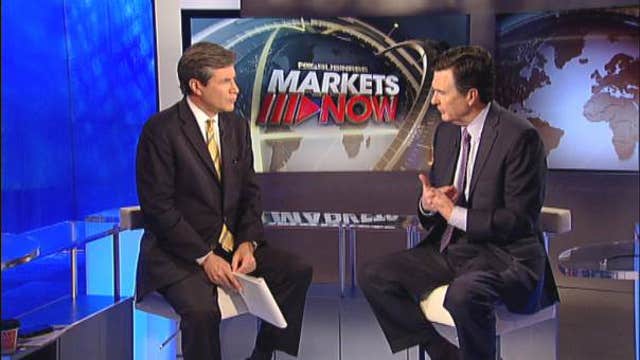Lockhart: Fed May Trim QE in Coming Months
A top Federal Reserve official said Monday that scaling back its massive bond purchases right now would be “premature,” but that “we are approaching a period in which it could be considered.”
Dennis Lockhart, president of the Federal Reserve Bank of Atlanta, is the latest member of the Fed to weigh in on plans for its “quantitative easing” program. QE is an operation in which the central bank is buying bonds in a bid to stimulate the economy by putting downward pressure on longer-term interest rates.
In theory, the purchases raise demand for bonds, increasing their prices. Interest rates move in the opposite direction of prices, so the Fed hopes yields will fall.
In its current round of QE, the Fed is buying $85 billion a month of government and mortgage-backed securities. The purchases have helped swell the Fed’s balance sheet to more than $3 trillion.
But Fed chairman Ben Bernanke and other Fed members have recently hinted that if the economy starts to grow faster and job creation accelerates, the Fed might start reducing -- “tapering” -- its purchases. Minutes of the two-day Fed policy meeting that ended on May 1 showed interest by some members to start tapering as early as this month.
The chatter has rattled financial markets, especially the bond market, where prices have dropped and interest rates have risen. Mortgage rates in particular have moved higher.
“To translate ‘tapering’ into ‘downward adjustment: I think we are approaching a period in which it could be considered,” Lockhart said in an interview with FOX Business. “That’s not to say June meeting, but we are approaching a period in which it can be seriously considered based upon sort of the momentum of the economy -- which is not great but is nonetheless is moving forward -- and based upon accreting confidence in the economy.”
Like other Fed members, Lockhart said he is closely watching employment reports for decisions about next policy moves. The jobless rate stood at 7.5% in April, according to the Labor Department, and economists expect it to have held there in May.
“I expect that we'll see this kind of moderate pace of job creation in the 160,000-175,000 (a month) range - something like that. Above that I think would certainly be encouraging,” he said. “Below that would give me a little pause about whether we have enough momentum going to consider an adjustment to the asset purchases…I still think we have to be cautious to make sure that we’re reading an economy that has momentum and has growing confidence. So there’s certainly a case for, at this very moment, it being a little bit premature. It’s a meeting-by-meeting kind of thing.”
Lockhart is currently not a voting member of the Fed’s policy body, the Federal Open Market Committee. However, he attends all meetings and participates in discussions.
While most economists believe the Fed’s next move in bond purchases will be to cut back, Lockhart endorsed the most recent FOMC statement, which said the FOMC could increase bond purchases -- stimulate more -- if economic conditions warrant it. For Lockhart, two developments that could require it are deflation (falling prices) or a shock to the economy “that appears to be threatening recession,” he said.
“I think we have been trying to position this policy as a flexible policy that could be used in either direction, be calibrated to how the economy is actually performing,” Lockhart said. “I don’t think (an increase) can be ruled out.”




















